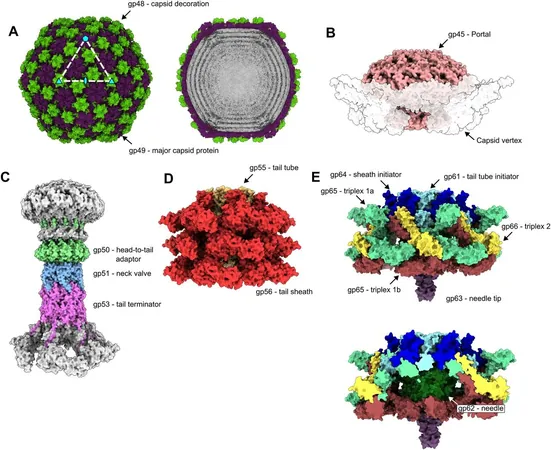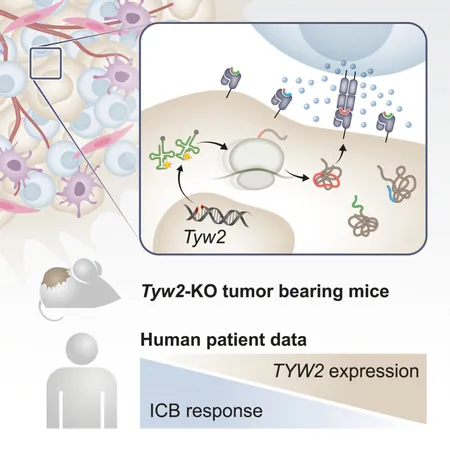
Revolutionary Virus Breakthrough Offers Hope Against Antibiotic-Resistant Superbugs
2025-03-27
Author: Ming
In a groundbreaking study, scientists from the University of Sheffield have uncovered vital insights into a unique "friendly virus" that could play an essential role in combating the deadly superbug, C. difficile (C. diff), which poses a significant challenge due to its rapid evolution of antibiotic resistance.
Researchers have identified a spider-like virus, scientifically known as a bacteriophage (or phage), that possesses the remarkable ability to penetrate the protective barriers of C. diff. These friendly viruses are designed to selectively target and eliminate harmful bacteria while preserving healthy microbiota, offering a promising alternative to traditional antibiotic treatments.
Phage therapy, the use of these viruses to treat bacterial infections, holds immense potential in the fight against antibiotic-resistant strains. The latest findings reveal how the phage mechanism allows it to infiltrate C. diff effectively, paving the way for new therapeutic strategies as antibiotic options dwindle.
Utilizing advanced high-resolution electron microscopy, the research team famously studied this phage in exquisite detail for the first time. The analysis showed that the phage functions similarly to a tiny syringe, featuring a uniquely compact needle tip and a modified contraction mechanism likely adapted to infect C. diff specifically. These distinct structural characteristics could mean a significant leap forward in developing targeted phage therapies.
While bacteriophages are not yet recognized as approved medicines in many countries, the compelling evidence emerging from this research is strengthening calls for greater acceptance and integration of phage therapy into modern medical practices.
Moreover, a recent report released by the House of Commons Science, Innovation and Technology Committee in November 2023 emphasized the necessity for expanded research into phage applications in treating drug-resistant bacterial infections. Experts argue that this study could be the catalyst for the development of innovative phage-based treatments that might ultimately save thousands of lives lost to antibiotic-resistant infections.
With the threat of superbugs looming larger than ever, scientists are urging regulators to accelerate the process of integrating these viral warriors into the medical arsenal against infectious diseases. Could bacteriophage therapy be the future of medicine we’ve been waiting for? The clock is ticking, and the need for effective solutions has never been more urgent!





 Brasil (PT)
Brasil (PT)
 Canada (EN)
Canada (EN)
 Chile (ES)
Chile (ES)
 Česko (CS)
Česko (CS)
 대한민국 (KO)
대한민국 (KO)
 España (ES)
España (ES)
 France (FR)
France (FR)
 Hong Kong (EN)
Hong Kong (EN)
 Italia (IT)
Italia (IT)
 日本 (JA)
日本 (JA)
 Magyarország (HU)
Magyarország (HU)
 Norge (NO)
Norge (NO)
 Polska (PL)
Polska (PL)
 Schweiz (DE)
Schweiz (DE)
 Singapore (EN)
Singapore (EN)
 Sverige (SV)
Sverige (SV)
 Suomi (FI)
Suomi (FI)
 Türkiye (TR)
Türkiye (TR)
 الإمارات العربية المتحدة (AR)
الإمارات العربية المتحدة (AR)